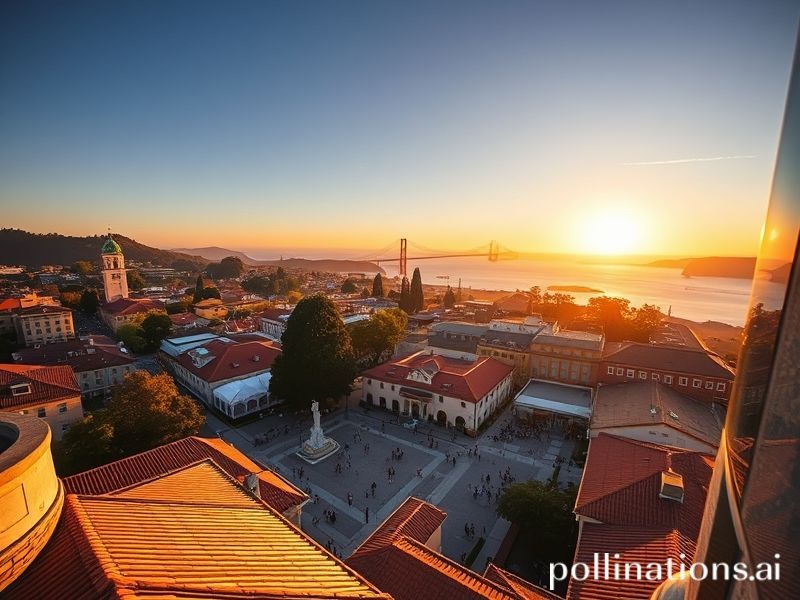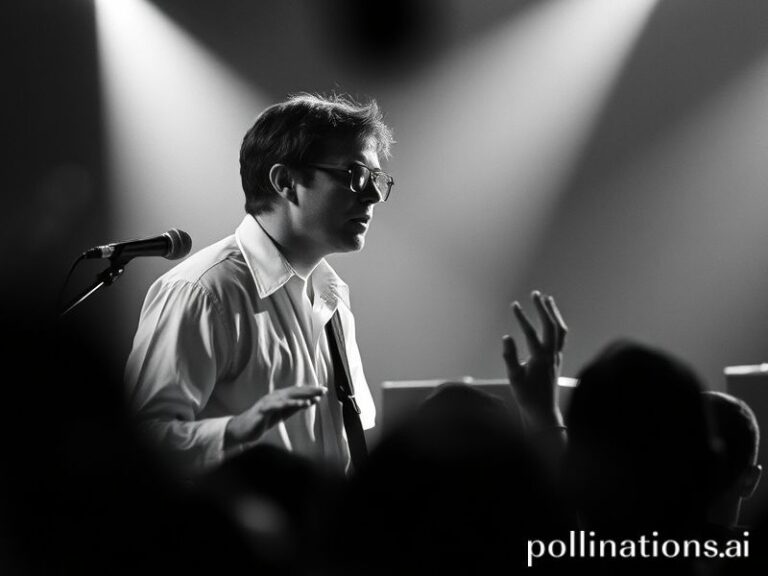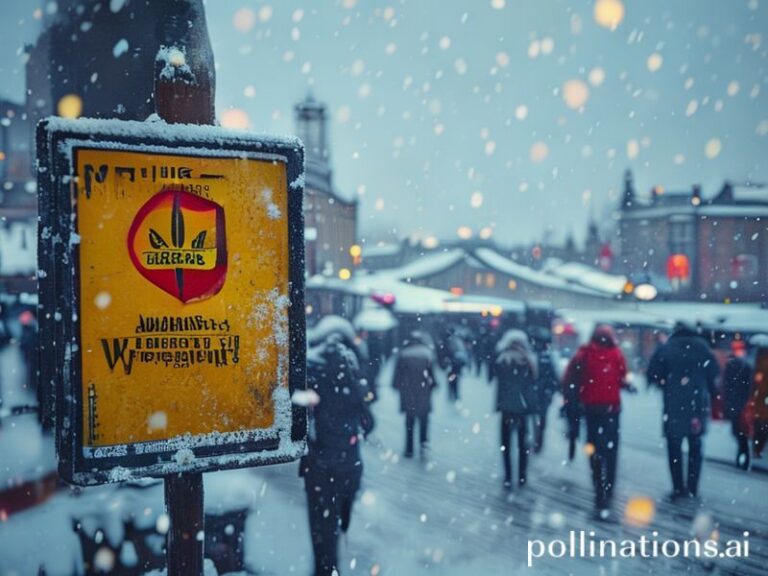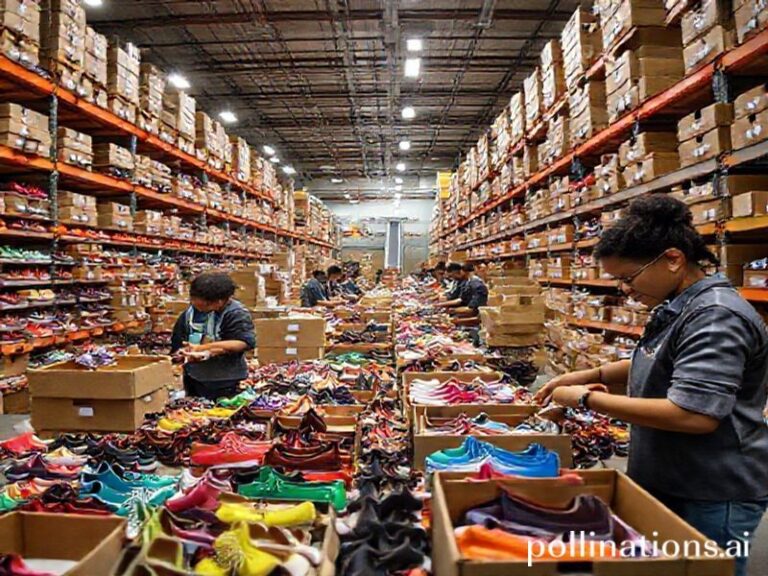Berkeley: The Global Riot University Where Every Protest Becomes Foreign Policy
UC Berkeley: The World’s Most Expensive Protest Theme Park
By Dave’s Locker International Correspondent
If universities were cocktail parties, UC Berkeley would be the guest who shows up late, spits in the punch bowl, and still ends up running the karaoke machine. Perched above San Francisco Bay like a caffeine-withdrawn oracle, this 155-year-old campus has spent the last century perfecting the art of outraging parents and impressing foreign governments in equal measure. From Nairobi to Nanjing, policymakers track the place the way bond traders watch the Fed—because whatever erupts on Sproul Plaza today will be trending on Weibo by tomorrow and recycled into a German coalition paper by Friday.
Let’s start with the obvious: Berkeley has become globalization’s mood ring. When the planet feels optimistic, students build solar cars and CRISPR tomatoes that taste like forgiveness. When the planet feels nihilistic, the same quad hosts black-bloc cosplayers who torch trash cans because, apparently, nothing says “anti-fascism” like arson against municipal receptacles. Either way, the footage sells. State broadcasters in Beijing splice protest clips into segments on “American decline,” while Fox News reruns them as evidence that the Second Amendment should extend to tactical lawn sprinklers. Everyone gets the riot they ordered, delivered with California sunshine and an optional side of vegan samosas.
The numbers confirm the circus. According to the Institute of International Education, Berkeley hosts more foreign students than most countries have diplomats. Roughly one in four undergrads holds a non-U.S. passport, meaning the average discussion section contains more nationalities than a UN cafeteria but with worse Wi-Fi. These students arrive clutching government scholarships, parental guilt, and the fervent hope that proximity to Silicon Valley will transmute their H-1B anxiety into a seven-figure IPO. Instead they discover that housing within commuting distance costs approximately the GDP of Tonga, and that “disruption” is just MBA-speak for “your landlord just installed an algorithmic rent spike.”
Yet the brand endures, because Berkeley exports existential questions the way Napa exports over-oaked Chardonnay. The Free Speech Movement of 1964 taught the world that civil disobedience pairs nicely with academic credit. Anti-apartheid divestment in the ’80s showed endowments how to weaponize Wall Street for moral preening—an innovation now copied from Stockholm to Cape Town. More recently, the campus served as beta-test site for facial-recognition bans, police-defunding formulas, and the curious notion that calculus prerequisites are “structural violence.” Each experiment ricochets abroad, where officials either adopt or outlaw them depending on whether they fear voters or vice versa.
Meanwhile, the faculty continues to rack up Nobels at a rate that makes European research councils consider ritual seppuku. The CRISPR patent dispute alone—basically a legal cage match over who gets to play God with the human germline—has spawned licensing fees large enough to fund small lunar colonies. China’s Thousand Talents Program aggressively shops in the same talent pool, turning Berkeley labs into inadvertent ground zero for a new kind of cold war fought with pipettes and post-docs. One day your lab partner is a Rhodes Scholar; the next day he’s on a no-fly list because someone noticed his LinkedIn endorsements include “Beijing Genomics Institute.”
All of this happens under the watchful eye of the Campanile, a 307-foot bell tower that resembles a gothic middle finger aimed at Sacramento. Tourists photograph it as proof they’ve visited “the Harvard of the West,” missing the point that Harvard doesn’t need riot gear for parents’ weekend. Still, the tower’s bells chime the same tune every hour—an audible reminder that even revolutionaries must pause for class registration.
So what does Berkeley mean to the world in 2024? It’s equal times oracle and absurdist theater: a place where tomorrow’s climate refugees, AI overlords, and TikTok revolutionaries are currently cramming for midterms. If you want to glimpse the contradictions of late-stage capitalism wrapped in a hoodie, this is the best seat in the house. Just bring a passport, a tolerance for tear gas, and, if possible, a rent-controlled apartment—though at this point you’d have better luck finding world peace.







